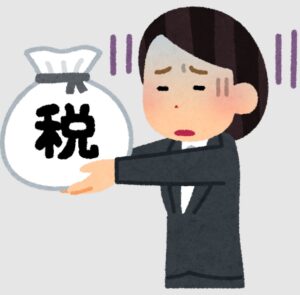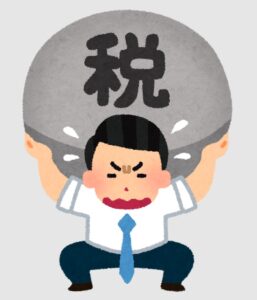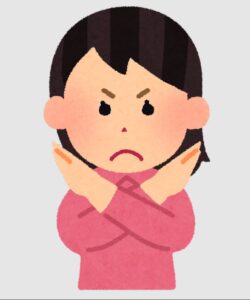管理人オススメコンテンツはこちら
「数字が絶対に必要|半分の日本人が知らない、保険の正体」
〜前回のつづき〜
●ステップ式 保険の見直しの方法
ステップ(1)
保険の役割を正しく認識する
ここが今回のお話しの
一番重要な所なんですよ。
勘所(かんどころ)と
言ってもいい所なので
気合いを入れて聞いてください。
保険を
・継続するか
・解約するか
という事の前に
このステップが重要です。
あなたはそもそもの
保険の役割を
正しく認識出来ていますか?
という事なんですよ。
ここを考えてみて欲しいんですね。
あなたは
保険の役割というのを
一言で言えますか?
実は日本人の50%は
保険の役割を
正しく理解出来てないんですよ。
2019年に国が
『金融リテラシー調査』というものを
実施したんですよ。
18歳〜79歳の2万5千人を
対象にした大規模な調査で
金融リテラシーというのは
お金に関する
・知識
・判断力
の事です。
・家計管理
・税金
・保険
・資産運用
などにどれだけ詳しいか?
という事ですね。
この調査の中で
保険の役割というのを
認識出来てるのか?
という事を
尋ねる項目が有ったんですよ。
これの正答率というのが
50%の問題なんですね。
だからあなたも
チャレンジしてみましょう。
~・~・~・~
Q:保険の基本的な働きに関する次の記述のうち適切なものはどれか?
1)リスクの発生頻度は高いが発生すると損失が大きい場合に有効
2)リスクの発生頻度は低いが発生すると損失が大きい場合に有効
3)リスクの発生頻度は高いが発生すると損失が小さい場合に有効
4)リスクの発生頻度は低いが発生すると損失が小さい場合に有効
5)わからない
〜・〜・〜・〜
正解: 2)リスクの発生頻度は低いが発生すると損失が大きい場合に有効
つまり滅多に起らなけど
起きたらヤバい事に備えるのが
保険なんですね。
こういった
基本的な問題でさえ
2人に1人は
回答出来てないんですよ。
保険大国ニッポンなのに
みんな入ってる国なのに
みんな入ってる中で
なぜ保険に入ってるかを
思い出して欲しいんですけど
なんで保険に入ったのか?
社会人になったら
保険に入るものだと
家族や友人に勧められたから
とか
まわりの人はみんな入ってるから
とか
入っておかないと何となく不安だから
とか
社会人になったら
保険のセールスレディが
職場に入ってきて
(あの人たちは職場に入る事を
許されてるのはなぜなんでしょう?)
保険を勧められて
みんな入ってるから
自然に入っちゃったとか
せいぜい
こんな理由ですよね?
もちろんキッチリ計算して
保険に入ってるという人も
もちろんいるのはわかってます。
だけど
ほとんど保険に入ってる人は
『何となく』という人が
多いですよね?
つまり保険に
入るかどうかを検討するには
自分が心配している事の
発生確率
それと
自分が心配している事が起きたら
どれぐらいの損失が発生するのか
この2つの客観的情報
『幅』と『確率』
つまり
数字というものが
絶対に必要だという事なんですよ。
これが無い事には
判断出来ない訳ですよね?
当然ですよね?
これが無いと判断出来ない。
〜〜〜つづく〜〜〜
Special Thanks college president Ryo.
●おまけ
≪≪perplexityちゃんによる文章まとめ≫≫
保険を見直す際に最も重要なのは、まず「保険の役割」を正しく理解することです。
多くの人が「社会人になったから」「周囲が入っているから」「なんとなく不安だから」といった曖昧な理由で保険に加入していますが、本来保険は「発生頻度は低いが、起きた場合の損失が大きいリスク」に備えるためのものです。
2019年の金融リテラシー調査でも、保険の役割を正しく認識している人は約半数にとどまりました。
保険の必要性を判断するには、自分が心配しているリスクの発生確率と、起きた場合の損失額という客観的な数字が不可欠です。
これらを明確にして初めて、自分に本当に必要な保険かどうかを見極めることができます。
[1] https://www.jili.or.jp/lifeplan/houseeconomy/848.html
[2] https://www.lifenet-seimei.co.jp/media/insurance-about/life-insurance-subscription/
[3] https://www.wealthnavi.com/wealthguide/articles/1083
[4] https://www.jili.or.jp/research/report/9849.html
[5] https://prtimes.jp/main/html/rd/p/000002563.000001348.html
[6] https://www.navinavi-hoken.com/articles/generation-z
[7] https://www.dlri.co.jp/report/ld/319187.html
[8] https://konohoken.com/article/konohoken-research/reports-get-insurance-20240527/
[9] https://hokencospa.jp/feature-groups/expert-interview/features/insurance-participation
[10] https://interg.co.jp/blog/pressrelease20231124/
≪≪Chat-GPTくんによる英訳≫≫
~Continuation from the last time~
【Step-by-Step Guide to Reviewing Your Insurance】
Step (1): Understand the True Role of Insurance
This is the most important part of today’s discussion.
You could say it’s the key point, so please pay close attention.
Before deciding whether to:
Keep your insurance, or
Cancel your insurance
This step is crucial.
Ask yourself:
Do you truly understand the original purpose of insurance?
I want you to really think about this.
Can you explain the role of insurance in just one sentence?
In fact, 50% of Japanese people don’t fully understand the purpose of insurance.
In 2019, the Japanese government conducted a Financial Literacy Survey.
It was a large-scale study involving 25,000 people aged 18 to 79.
Financial literacy means your:
Knowledge, and
Decision-making ability
regarding money — including things like:
Household budgeting
Taxes
Insurance
Asset management
One part of the survey asked if people understood the role of insurance.
Only 50% answered correctly.
Now, let’s see if you can get it right.
—
Q: Which of the following best describes the basic function of insurance?
1. Useful when risks occur frequently and result in large losses
2. Useful when risks occur rarely but result in large losses
3. Useful when risks occur frequently but result in small losses
4. Useful when risks occur rarely and result in small losses
5. Don’t know
—
Correct Answer:
2) Useful when risks occur rarely but result in large losses
In other words, insurance is meant to protect you from unlikely but catastrophic events.
Even a basic question like this —
half of the people couldn’t answer correctly.
Despite Japan being a country where nearly everyone has insurance,
most people don’t know why they’re actually enrolled.
Think back to why you got insurance:
Because someone told you it’s something adults should do
Because everyone around you had it
Because you felt vaguely anxious without it
Because a sales representative came to your workplace after you became a working adult
(Why are they allowed to come into workplaces anyway?)
Because it just seemed natural since everyone else was doing it
These are probably the main reasons, right?
Of course, there are people who carefully calculated their risks and coverage needs.
But for most, it was a vague decision based on feelings rather than facts.
So, to properly evaluate whether to have insurance, you must consider two objective factors:
1. The likelihood of the event you’re worried about happening
2. The size of the loss if it does happen
These two pieces of data — “probability” and “impact” —
that is, numerical information, are absolutely essential.
Without them,
you simply can’t make a proper decision, right?
It’s only logical.
You can’t make a decision without numbers.
Special Thanks OpenAI and Perplexity AI, Inc








